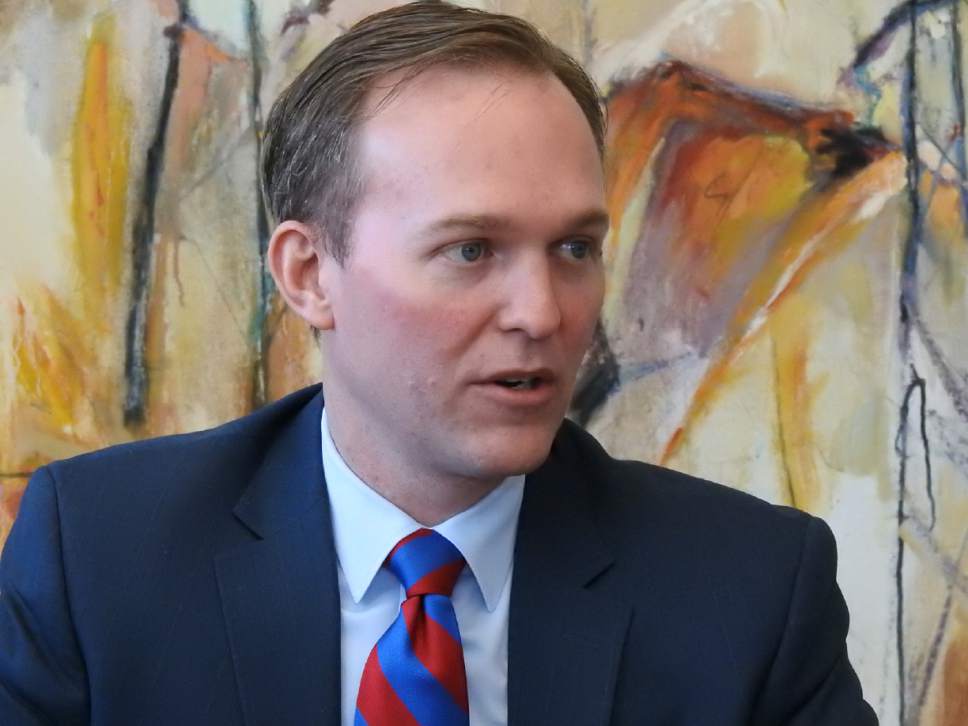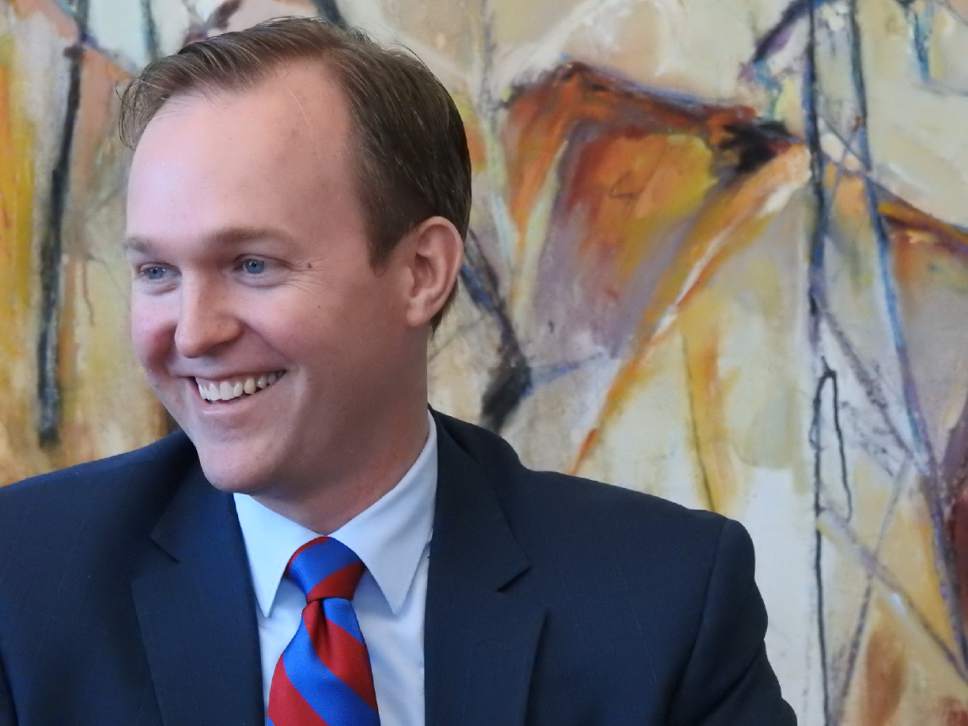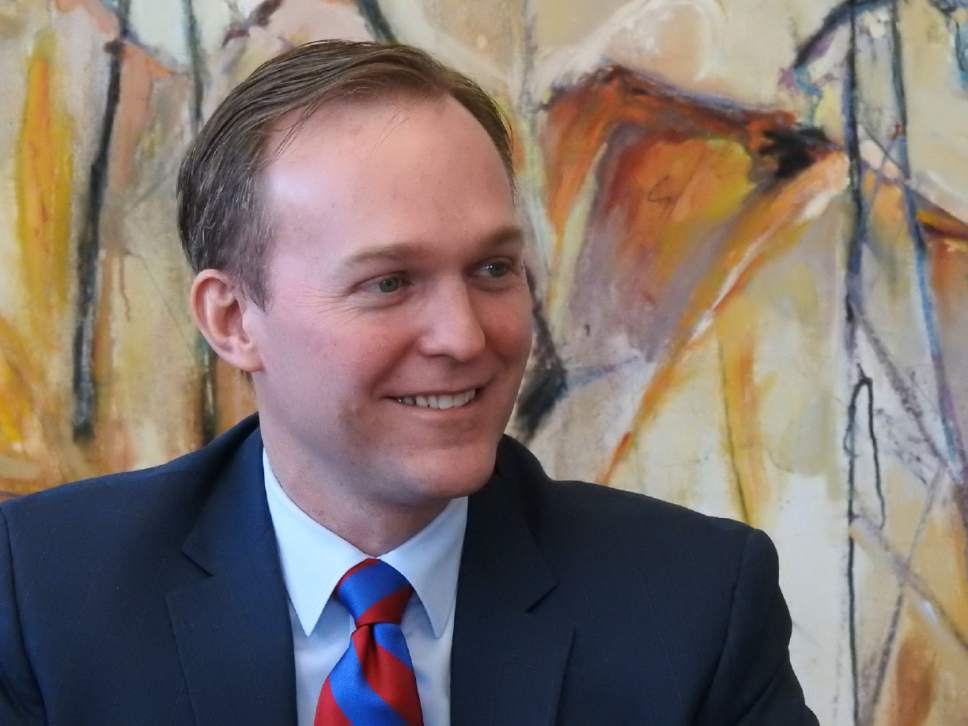This is an archived article that was published on sltrib.com in 2017, and information in the article may be outdated. It is provided only for personal research purposes and may not be reprinted.
Though Salt Lake County has named five potential sites for a new homeless shelter to be built in either West Valley City or South Salt Lake, county Mayor Ben McAdams indicated Monday — with just 17 days before he must submit a final decision to the state — that he's open to adding other yet-to-be-determined spaces to the mix.
"If the perfect site comes in and we have to insert that into the list, I think there's time to do that," he told The Salt Lake Tribune's editorial board.
Beginning in mid-February, McAdams said, the county started with a list of potential sites that included options in Sandy and Murray. Officials narrowed the choices to the current five based on size and proximity to mass transit that runs to downtown Salt Lake City, where most homeless-service providers are located.
The county has put down earnest money deposits on the five sites, McAdams said, but with contracts written so it won't lose funds on locations it chooses not to pursue. Because of that, he said, "the options are open."
The proposed sites are: 1820 W. Printers Row (2300 South), West Valley City; 2411 S. Winston St. (1070 West), West Valley City; 2249 S. Winston St. (1070 West), West Valley City; 3091 S. Main St., South Salt Lake; and 1144 W. 3300 South, South Salt Lake. None is in a primarily residential area.
Announced last week, the five potential locations are part of a consolidated city-county deal. Rather than its previously planned four 150-bed shelters, Salt Lake City will move forward with two 200-bed shelters, at 131 E. 700 South and 275 W. High Ave, while dropping the controversial Simpson Avenue property in Sugar House. A third will be sited in Salt Lake County outside of the capital city.
The redrawn plans forged by state leaders did not ultimately alleviate ongoing tensions between city and county officials over the project.
During his meeting with The Tribune, McAdams several times mentioned Salt Lake City Mayor Jackie Biskupski. He noted that she is "pushing hard" for the county to house the men's facility while the city hosts the women and gender-segregated populations. But the demographics at each center have not yet been decided, McAdams said.
He also disclosed that Biskupski barred the county from participating in the city's selection process. And though it was set by the state, the mayor called the 200-person cap on the city's facilities "a little arbitrary." The county's shelter, McAdams added, will house between 200 and 300 people.
And unlike the city's approach, with key decisions made largely without public input, the county will ask for feedback on the proposed sites over the next two weeks through a series of open houses and public meetings at the Utah Capitol.
McAdams also plans to add another public meeting in West Valley City, with the date to be determined, after residents raised concerns that the Capitol was inaccessible.
The county mayor said he anticipated that many attendees will "rail" about the site selections near their neighborhoods and is encouraging participants to supply specific and productive testimony about why specific locations might not work. West Valley City and South Salt Lake leaders have decried the proposed shelters.
"You're never going to get everybody happy," McAdams said, later adding: "Our goal is not to have unanimous consent."
The mayor also lamented the abbreviated timeline for the process, but he noted, "We can't change that."
McAdams said Utah lawmakers had hoped the county would have a site selected by last week's end of the legislative session — looking to shorten the process after Salt Lake City's rocky monthslong site selection. McAdams negotiated the deadline to March 30, he said, to allow more time for public feedback.
"Were I able to write the terms of this agreement, it would have looked different than what we see right now," he said. "Faced with maybe losing and not getting anything this legislative session or taking a proposal that was maybe a little bit of a give-and-take, I felt that I needed to take the offer that was on the table and make it work."
The state has committed $27 million to the project, with funds for construction of the shelters, called "resource centers," as well as ongoing services.
Lawmakers also passed a bill this session — yet to be signed by Utah Gov. Gary Herbert — that would aid the county by allowing it to override city ordinances with its shelter-site selection.
McAdams said he did not request the assistance but appreciates how it "moves the conversation forward."
Work on all three shelters will begin in the summer or fall with an anticipated completion date of June 30, 2019 — also the "hard close date" for the Road Home shelter at 210 S. Rio Grande St. in Salt Lake City.
The mayor cautioned residents not to view the new shelters as an outgrowth of the problems associated with homelessness downtown, such as drug use and crime. To minimize impacts on surrounding neighborhoods, he said, at least one of the facilities will not include "low-barrier entry," meaning not anyone off the street can walk in.
McAdams also said he would like to see the shelters treated as last-resort options, with people staying an average of just 30 days before having to find alternative housing or treatment.
"Once they do land in shelter, we expedite their exit as early as possible," the county mayor said. "We place shelter in the same category of an emergency room. This isn't a long-term-care facility."
Twitter: @CourtneyLTanner —
Public feedback schedule
Salt Lake County has scheduled the following public meetings to hear feedback on possible shelter sites. On Tuesday, March 28, its Site Evaluation Committee is slated to deliberate from 3 p.m. to 5 p.m. at the state Capitol (350 State St.) in Senate Room 210. Its recommendation to the State Homeless Coordinating Committee is due March 30.
Tuesday, March 14 • From 6 p.m. to 8 p.m., an open house will be held at the state Capitol (350 State St.) in the Senate Building cafeteria.
Saturday, March 18 • From 3 p.m. to 5 p.m., an open house will be held at the state Capitol (350 State St.) in the Senate Building cafeteria.
Wednesday, March 22 • From 6 p.m. to 8 p.m., the Site Evaluation Committee will meet and invite public comment at the state Capitol (350 State St.) in Senate Room 210.
Date and time to be determined • An open house will be held in West Valley City.







